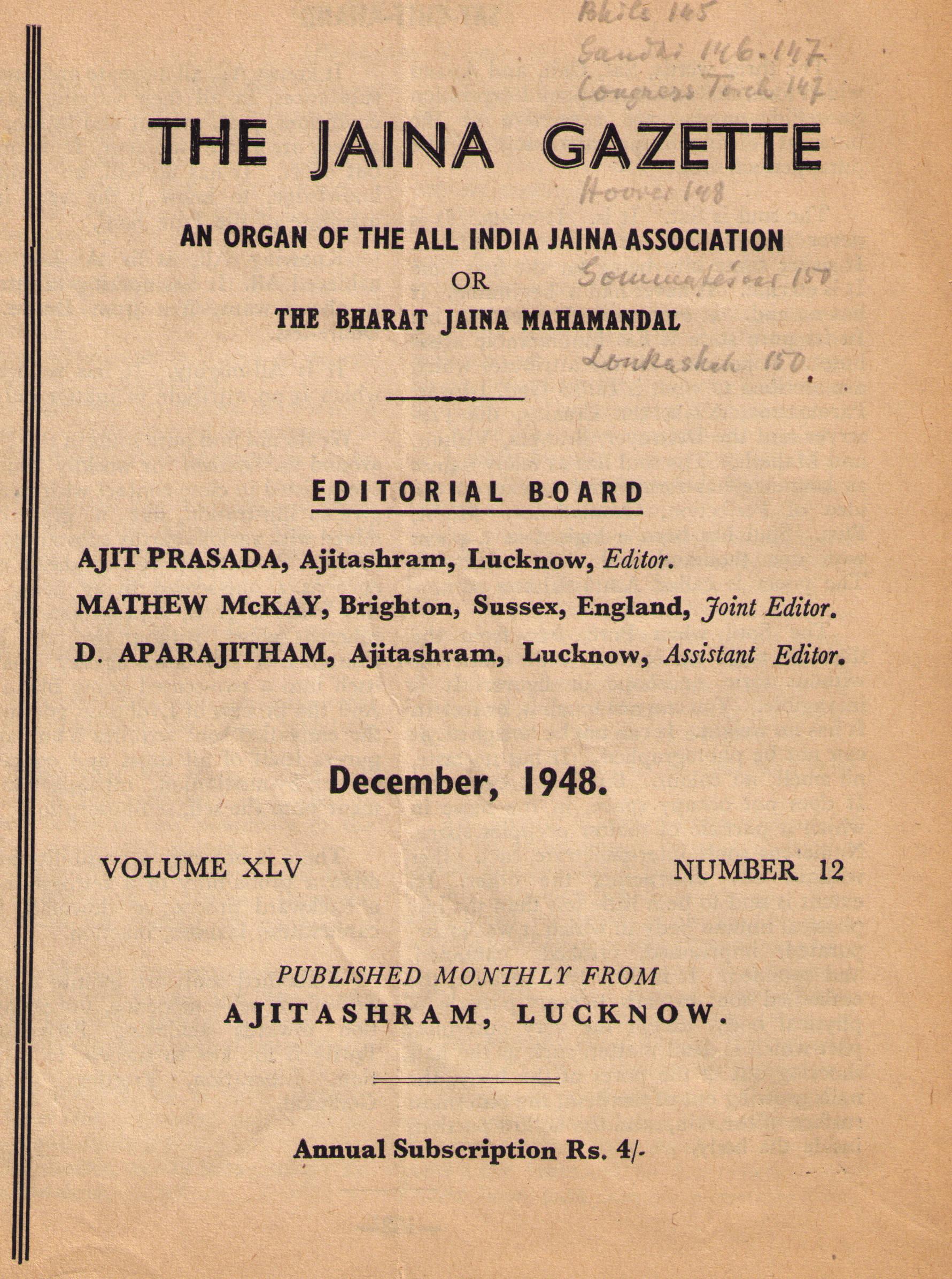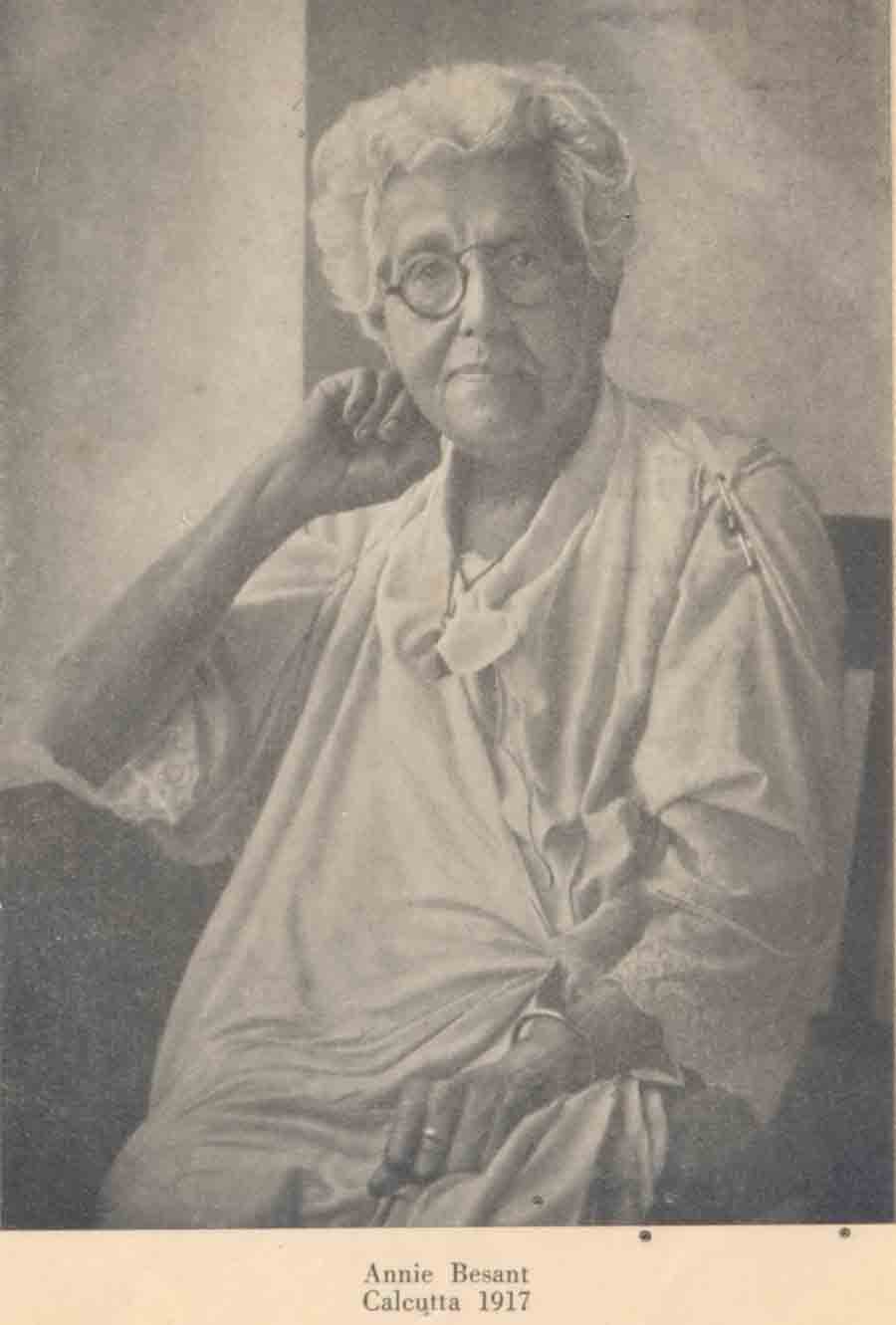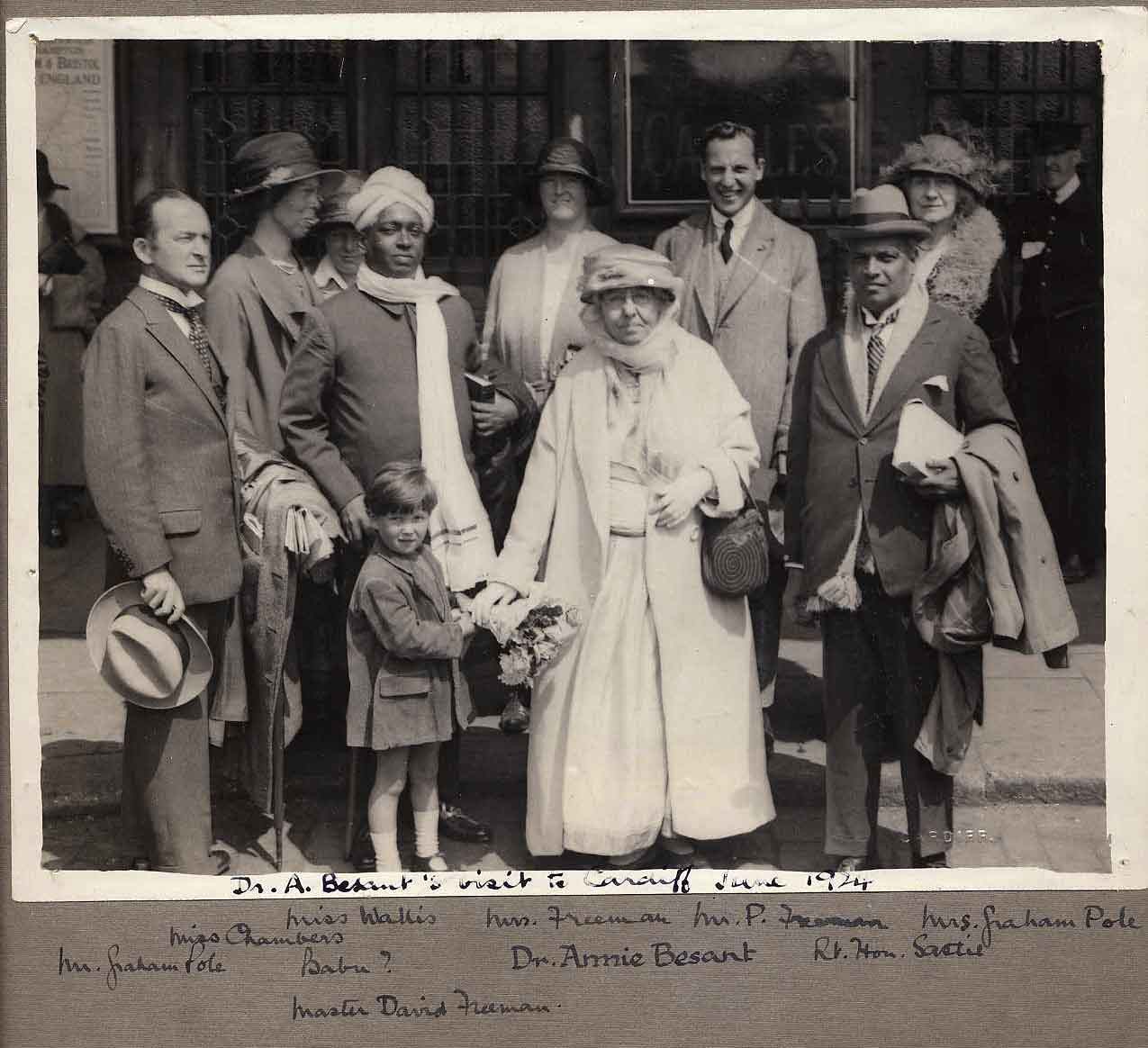
The following essay was published from the literary estate of Dr. Annie Besant in December 1948 in The Jaina Gazette, Vol. XLV (No. 12), pp. 141-142.
The Doctrine of Karma
Few things, perhaps are so dangerous as a little knowledge of the law of Karma. And unhappily many of us have stopped at the point of a little knowledge. We need to remember how Karma is made up, and judge it by what we know, and not by what we fancy. People often talk of Karma as though it were a kind of great lump which is flung down on a man's head at birth, against which he can do nothing. Sometimes this occurs, but in the vast majority of cases, the Karma that you are making every day is modifying all the result of the Karma of the past. It is a continuing creation, and not something lying in wait for us; it is not a sword hanging over us that may drop on us at any moment, it is a continually growing power, modified every moment by every thought, every desire, and every action. One way of appreciating this practically is to remember the Karmic laws. Thought makes character. Look back over any one day, and you will find your thoughts very mixed, some useful, some mischievous; and if you had to strike the balance, the resultant of the intermingling of all those thoughts in the Karmic stream might be very difficult to determine. So with desires: part of the day you are desiring nobly; part of it badly: sometimes wisely, sometimes stupidly. The resultant of your day's desires also it is not easy to see, but it will certainly be very mixed. So with your actions: some hasty words, some kind, some gentle, some harsh; very mixed once more. The study of one day will prove to you that you are creating a very mixed Karma, and that it is hard to say whether the outcome is for good or for evil. Apply that to your past lives, and you will get rid of the notion of an enormous stream that is sweeping you away.
That stream is made up of thousands and thousands of different currents, and they play themselves off, one against the other. With very many of the decisions that you take, and actions that follow on the decisions, the scales of Karma are balanced. A real understanding of Karma is a stimulus to exertion. At any moment you may change the issues of destiny, and may weigh down one scale or another of your fate. Karma is always in the making. Whatever the condition, make it the best of it for the moment, and if the scale against you be too heavy, never mind, you have done your best, and that will have gone into the other scale and made them more equal for the whole of your future.

Photo by Bangla Library
Exertion is always wise. No matter if it seems hopeless, you have diminished the weight against you. Every effort has its full result, and the wiser you are the better you can think and desire and act. If you think of Karma thus, it will never paralyse you, but always inspire you. "But" you say, "there are some things, after all, in which my fate is too strong for me." You can sometimes trick destiny, when you cannot meet it face to face. When sailing against contrary winds, the sailor cannot change the wind, but he can change the set of the sails. The direction of the ship depends on the relation of the sails to the wind, and, by carefully tackling, you can very nearly sail, against a contrary wind, and by a little extra labour reach your port. That is a parable about Karma, if you cannot change your fate, change yourself, and meet it at a different angle, and you will go gliding away successfully where failure seemed inevitable. The things that are really inevitable, and in which you cannot change your attitude endure. They are very few. When there is some destiny so mighty, that you can only go down before it and yield, even then learn from it, and out of that destiny you will gather a flower of wisdom that perhaps a happier fate might not have enabled you to pluck. And so in every way we find that we can meet and conquer, and even from defeat may pluck the flower of victory.
In India every truly religious man offers' five sacrifices every day. One of those sacrifices is the "sacrifice to men"; as we might say, the sacrifice to humanity. The application of that is that before the householder eats his own food he must feed someone who has need of food. Only when he has fed another, may he take his own.
If we cannot do great things, let us do small things perfectly; for perfection lies in the perfection of every detail and not in the size of the act. There is nothing great, nothing small, from the standpoint of the Self. The act of the King whose will shapes a nation is no more great from the standpoint of the Self than the act of the mother who nurses a crying child.

International President of the Theosophical Society, Annie Besant arrives at Cardiff Central Station in June 1924 and is met by Cardiff Theosophists. Dr Besant is presented with a bouquet of flowers and a railway official (far right) seems to be enjoying the event. Photo by Theosophy Cardiff
 Annie Besant
Annie Besant